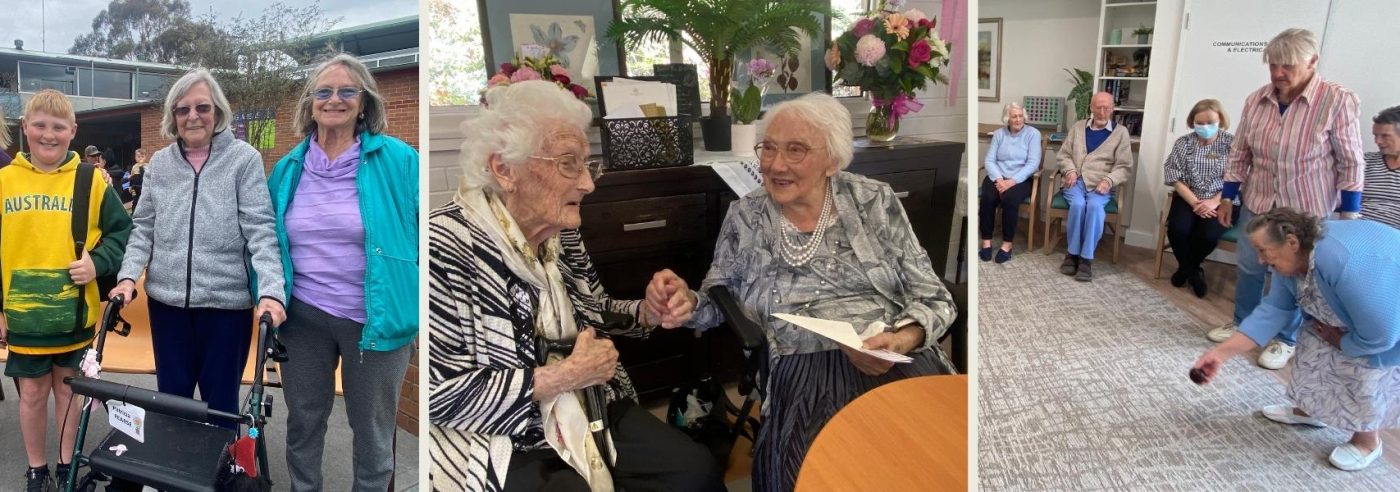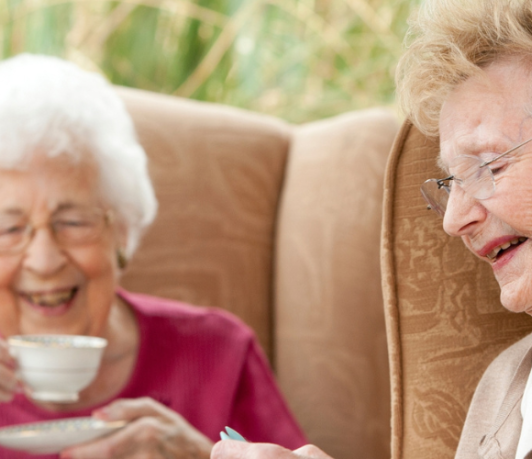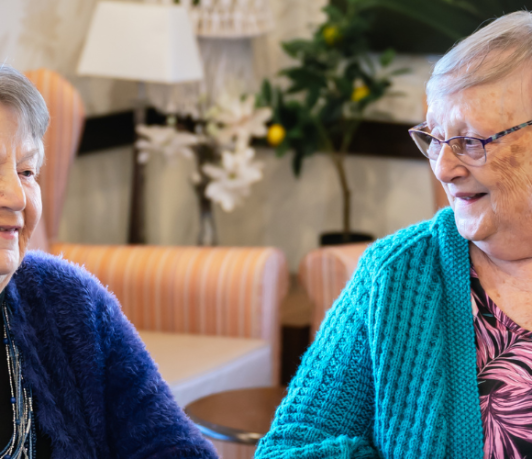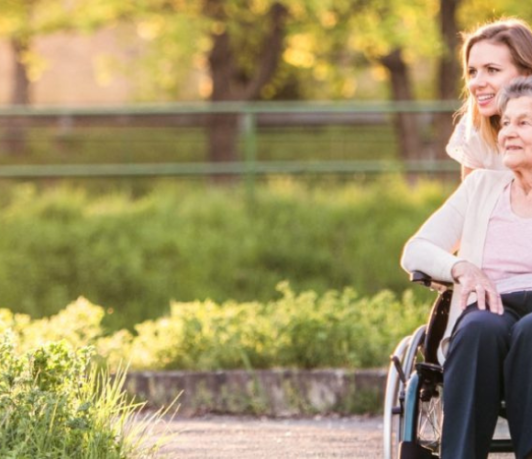Importance of Social Connections As We Age
Aged Care, Home Care |

Ageing is a natural part of life and something that we will all experience. As we get older, various changes unfold – physical, emotional, and social – and among these changes, the significance of maintaining strong social connections often becomes increasingly evident.
In this blog, we delve into the significance of maintaining your social health as you age, and examine why it continues to be an important focus for so many older Australians currently accessing home care services.
Experiencing and dealing with change
With age, our lives take on a different character. While our bodies may begin to show signs of wear and tear, our priorities also change – shifting away from focus areas like career ambitions or raising children. Instead, we increasingly focus on health, wellbeing, and personal satisfaction. And for some people, these shifts can result in feelings of isolation or loneliness.
The significance of social connections
Social health can be defined as our ‘ability to interact and form meaningful relationships with others’. There are numerous benefits associated with having a high level of social health, including:
- Emotional wellbeing: Nurturing social connections as you age significantly impacts your emotional wellbeing. Your social networks provide a support system that counters feelings of isolation and depression. Engaging with friends, family, and acquaintances can bring you joy, laughter, and a sense of belonging, contributing to your emotional resilience.
- Cognitive health: Social connections serve as a mental workout for your brain. Engaging in conversations, solving problems together, and participating in social activities stimulate cognitive function. Multiple studies have demonstrated that older individuals who maintain active social lives have a lower risk of cognitive decline and conditions such as Alzheimer’s disease.
- Physical health: Surprisingly, social connections can also positively influence your physical health. It’s been reported that when you have a robust social network, you are more likely to engage in physical activities, adopt healthier eating habits, and adhere to medical advice. All of these factors contribute to better overall health outcomes.
The isolation challenge
Loneliness and isolation can present significant challenges for older adults. Many seniors find themselves living alone, and their social circles may shrink due to factors like retirement, the loss of loved ones, or physical limitations. Without a strong support system, they risk falling into the isolation trap.
Social isolation can have dire consequences, both mentally and physically. It has been linked to an increased risk of depression, anxiety, heart disease, and even a shorter lifespan. Hence, prioritising social connections, especially as we age, becomes paramount.
The role of home care in providing social support
Home care has gained in popularity among older Australians who wish to maintain their independence and age comfortably in their own homes. Home care services encompass various offerings, ranging from assistance with daily activities to regular medical care.
However, it is essential not to overlook the social component of potential home care services and support, as they can make a world of difference.
Here are some ways that home care providers can support you and your loved ones to enhance social connections:
- Companionship services: Many home care agencies provide you with companionship services. Caregivers can spend time with you, engage in conversations, and offer emotional support. This not only combats loneliness but also fosters meaningful connections with others.
- Transportation assistance: Mobility can become a challenge as we age, making it difficult to visit friends, family, or engage in social events. As a result, home care providers can offer you transportation assistance, allowing you to maintain your social engagements and keep up a regular schedule of engaging with loved ones.
- Activity planning: Home care providers can also help you plan and participate in social activities, whether it’s joining a local club, attending community events, or simply going for a walk with a friend. These activities promote social interaction and engagement and form an important part of maintaining a healthy mindset and good health.
- Technology integration: In today’s digital age, technology can help bridge the gap between older Australians and their loved ones. Home care providers can assist you or your loved ones to use and draw on smartphones, tablets, or computers to stay connected through video calls and social media.
- Support for mental health: Home care professionals can also play a role in identifying signs of loneliness or depression and connecting you or your loved ones with appropriate mental health resources when needed.
To learn more about home care, read our comprehensive guide. We’ve also developed guides on applying for home care as well as preparing for an aged care assessment.
Tips for older Australians
With or without the support of home care services, there are of course several steps and actions you can take to ensure you are maintaining good social health. So whether you’re an older Australian or someone who is caring for an ageing loved one, here are some takeaway tips you can draw on to enhance your social connections as you age:
- Embrace change: Don’t be afraid to try new things and adapt to changing circumstances. Join clubs, take up hobbies, or explore new interests to meet like-minded individuals.
- Prioritise relationships: Invest time and effort in nurturing your existing relationships. Reach out to old friends and family members regularly, even if it’s just a phone call or a letter.
- Seek support: If you’re already receiving home care services, communicate your desire for social connections to your caregiver or provider. They can help you find opportunities for further engagement.
- Embrace technology: Don’t shy away from technology. Learn to use smartphones, tablets, or computers to connect with friends and family virtually. If in doubt or unsure, reach out to others for support and guidance – there is nothing to be ashamed of and the opportunities are well worth it!
- Stay active: Physical activity not only keeps you healthy but also provides opportunities for social interaction. Consider joining a walking group or exercise class.
In summary
Social connections are a vital aspect of our lives, especially as we age. They provide emotional support, intellectual stimulation, and a sense of belonging. For older Australians, integrating social connections into home care should not be considered as just a luxury; it’s a necessity for maintaining a high quality of life.
Home care providers in Australia have recognised the importance of social connections and are increasingly incorporating them into their services. Whether it’s companionship, activity planning, or technology assistance, these services are helping older Australians not just survive but thrive across their golden years.
We’re here to support you
At Respect, we’re passionate about supporting older Australians to ensure the next phase of their lives are filled with purpose and possibilities.
So whether it’s through our network or aged care homes or our home care support options, we are here for you and your family whenever you need us. Your future should shine with meaning, comfort and conveniences — and with our support, you’re backed by over a century of care and consideration for the way you want to live.
We’re here to help! For more information about how to access a Home Care Package and get started with home care support, including the available opportunities and our range of services, download your Complete step-by-step guide to Care at home.
Got questions or like to receive more support? Please reach our care at home advisors or call us on 1300 144 144 and choose “home care” as a service option.
Interested to learn more about our services?
Simply fill in the below form and one of our expert Advisors will give you a call within 48 hours to discuss your options.




